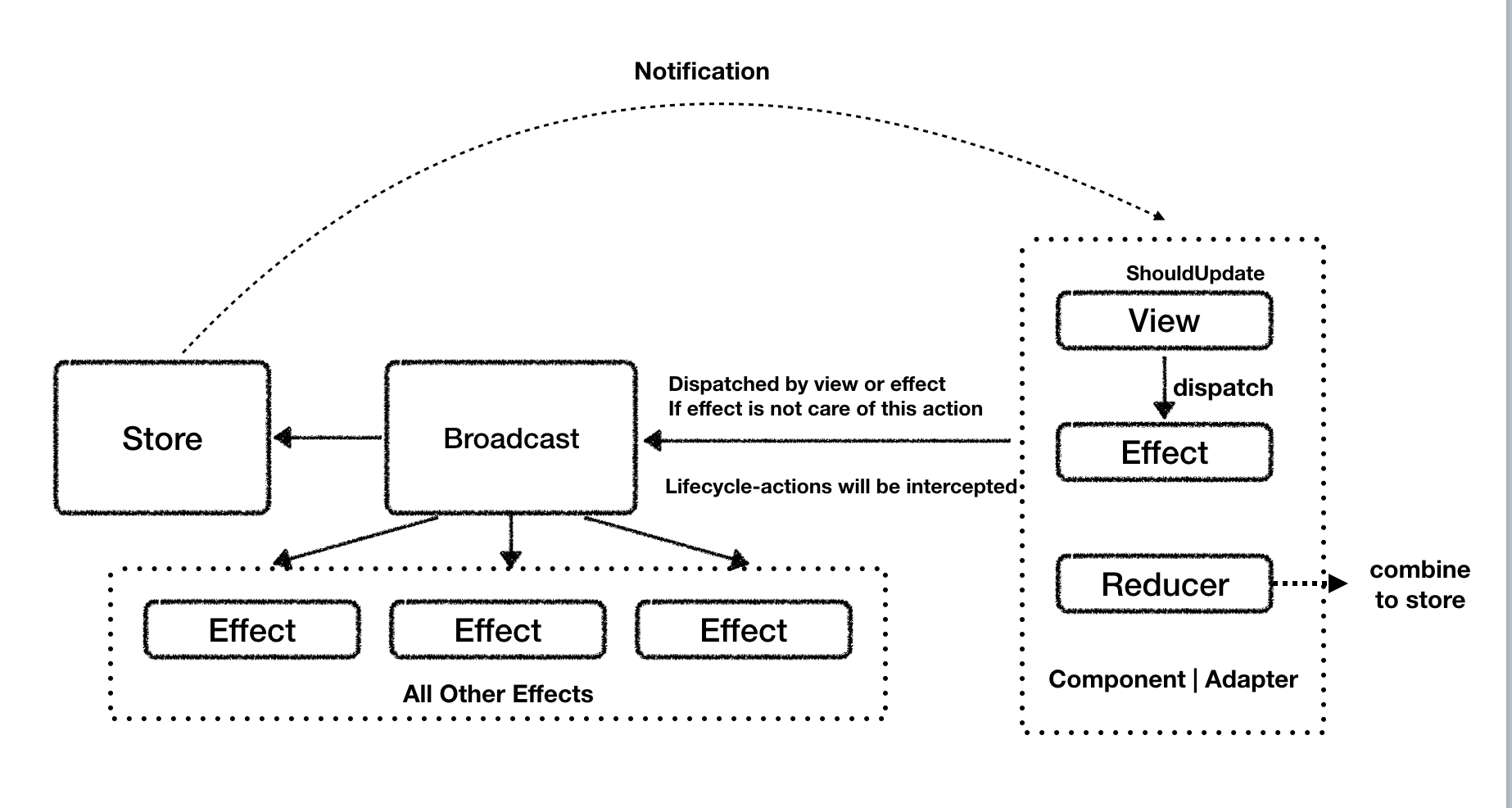Effect顾名思义,用于处理Action的副作用。
我估摸着有人就要问我了,副作用是啥玩意?
打个比方吧,假如我拥有一个函数 f()
fn f(x):
return x * 1
此时此刻,另一个函数 g()
fn g(x):
changeSystemEntropy()
return ax ^ 2 + bx + c
我们可以发现,g()里边有个改变系统熵的行为。这在函数式编程思想中,就叫做副作用,因为它可能影响到除了这个函数内部自身状态以外的其他状态。
在Fish-Redux中同样,我们通过 dispatch() 一些action实现状态修改,但是相对于状态来说,对外部的操作,类似于 SystemChrome.setSystemUIOverlayStyle()这样的操作,都是副作用。
现在介绍完了副作用,也没啥可介绍的了。
Effect用法跟Reducer差不太多,但是作用完全不同。
除了上面介绍的场景之外,异步请求也是一个经常会有的情况,这时候Effect可以帮你方便的解决这些问题。
你可以通过控制effect的返回值来达到某些目的,默认情况下,effect会在reducer之前被执行。
当前effect返回 true 的时候,就会停止后续的effect和reducer的操作
当前effect返回 false 的时候,后续effect和reducer继续执行
- Effect 是一个处理所有副作用的函数。它接收下面的参数
- Action action
- Context context
- BuildContext context
- T state
- dispatch
- isDisposed
Effect会接收来自 View 的“意图”,包括对应的生命周期的回调,然后做出具体的执行。 - 它的处理可能是一个异步函数,数据可能在过程中被修改,所以我们应该通过 context.state 获取最新数据。 - 如果它要修改数据,应该发一个 Action 到 Reducer 里去处理。它对数据是只读的,不能直接去修改数据。 - 如果它的返回值是一个非空值,则代表自己优先处理,不再做下一步的动作;否则广播给其他组件的 Effect 部分,同时发送给 Reducer。
- 示例代码
/// one style of writing
FutureOr<Object> sideEffect(Action action, Context<String> ctx) async {
if (action.type == Lifecycle.initState) {
//do something on initState
return true;
} else if (action.type == 'onShare') {
//do something on onShare
await Future<void>.delayed(Duration(milliseconds: 1000));
ctx.dispatch(const Action('shared'));
return true;
}
return null;
}
class MessageComponent extends Component<String> {
MessageComponent(): super(
view: buildMessageView,
effect: sideEffect,
);
}/// another style of writing
Effect<String> buildEffect() {
return combineEffects(<Object, Effect<String>>{
Lifecycle.initState: _initState,
'onShare': _onShare,
});
}
void _initState(Action action, Context<String> ctx) {
//do something on initState
}
void _onShare(Action action, Context<String> ctx) async {
//do something on onShare
await Future<void>.delayed(Duration(milliseconds: 1000));
ctx.dispatch(const Action('shared'));
}
class MessageComponent extends Component<String> {
MessageComponent(): super(
view: buildMessageView,
effect: buildEffect(),
);
}